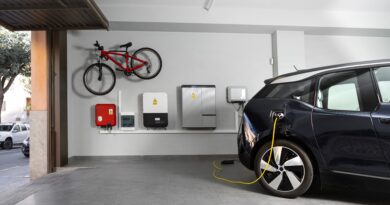The UK is experiencing a surge in the adoption of renewable energy technologies, with a significant rise in heat pump and solar panel installations compared to previous years.
Recent data from the official standards body for renewable technologies, MCS, reveals that the country has witnessed a remarkable increase in the installation of these energy-efficient solutions in both households and businesses.
Record-Breaking Installations
In the first half of 2023 alone, over 120,000 certified installations of heat pumps, solar panels, and other renewable technologies have been logged. This marks a substantial increase compared to previous years, demonstrating a growing embrace of sustainable energy solutions in the UK.
The data also shows that monthly installations have consistently surpassed 3,000 for the first time this year, indicating a steady upward trend in renewable energy adoption. This positive trajectory suggests that nearly 250,000 households could potentially have renewable energy installations by the end of the year.
Government Targets and Incentives
The UK government has set ambitious targets to accelerate the transition to renewable energy. By 2035, the country aims to achieve a solar capacity of 70GW and install 600,000 heat pumps annually by 2028. To incentivize the adoption of these technologies, the government has introduced schemes to provide financial support.
Under the boiler upgrade scheme, eligible homeowners in England can receive grants ranging from £5,000 to £6,000. In Scotland, the incentive is even more substantial, with grants between £7,000 and £9,000, along with an optional loan of £7,500. These financial incentives aim to make renewable energy installations more accessible and affordable for households across the country.
Positive Impacts and Cost Savings
Norman Pitt, a homeowner who took advantage of the government scheme, had solar panels, a heat pump, and batteries installed in his home. Despite the initial cost of nearly £30,000, Norman believes it was a wise investment. He shared, “Putting aside the upfront costs, our electricity consumption costs have dropped significantly. We are going green, saving our planet. We have also purchased an electric car, and the overall costs of this installation are comparable to what I used to spend on fuel. We are extremely pleased with the results.”
The adoption of renewable energy technologies not only contributes to a greener future but also provides significant cost savings in the long run. Many households experience a substantial reduction in their energy bills, thanks to generating their own clean energy and reducing reliance on traditional fossil fuel sources.
The Importance of Affordability and Accessibility
While the current government scheme has facilitated a considerable increase in installations, there is still a need to address affordability and accessibility concerns. For many households facing a cost of living crisis, investing in renewable energy installations may be financially unattainable. It is crucial to ensure that initiatives prioritize those most in need to address energy poverty and provide equitable access to clean energy solutions.
Aimee Ambrose, a professor of energy policy at Sheffield Hallam University, emphasizes the importance of prioritizing households that struggled to heat their homes during the previous winter. She suggests that government intervention is necessary to ensure that landlords support their tenants by providing safe and warm homes.
MCS’s Call for Expansion and Workforce Development
MCS, the body accrediting low carbon products, calls for an expansion of the boiler upgrade scheme to provide more substantial grants and vouchers each year. In addition to financial support, there is a need to focus on building up the installation workforce to meet the government’s ambitious targets.
Ian Rippin, CEO of MCS, highlights the increasing consumer confidence in investing in small-scale renewables. However, he emphasizes the importance of making the transition to renewable energy even easier. This includes streamlining the installation process, reducing costs, and improving accessibility and affordability for all households.
The Government’s Response
In response to the growing demand for renewable energy installations, a spokesperson for the Department for Energy Security and Net Zero highlights the government’s significant investments in improving energy efficiency across the country. They mention that £6.6 billion has been invested in upgrading 2.5 million homes, resulting in 47% of homes having a rating of C or above. The Great British Insulation Scheme aims to further support an additional 300,000 homes by extending the legal duty on suppliers to help customers insulate their homes.
The government remains focused on achieving its target of 600,000 heat pump installations per year by 2028. The grants offered towards the cost of installations, ranging from £5,000 to £6,000, are instrumental in incentivising households to embrace renewable energy solutions and contribute to the national transition to a low-carbon future.






